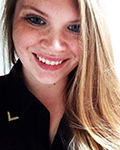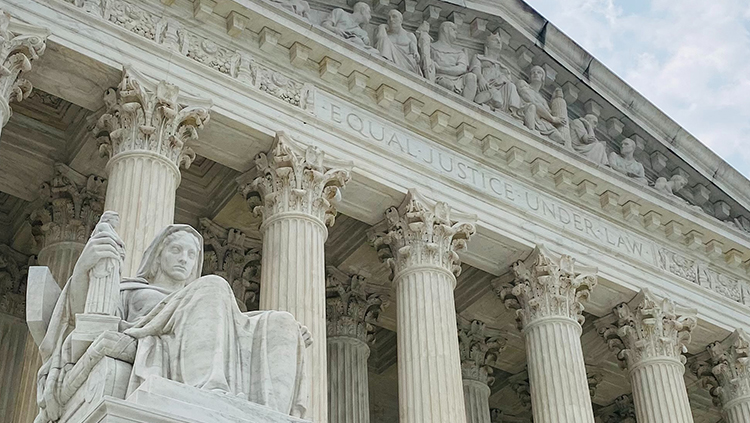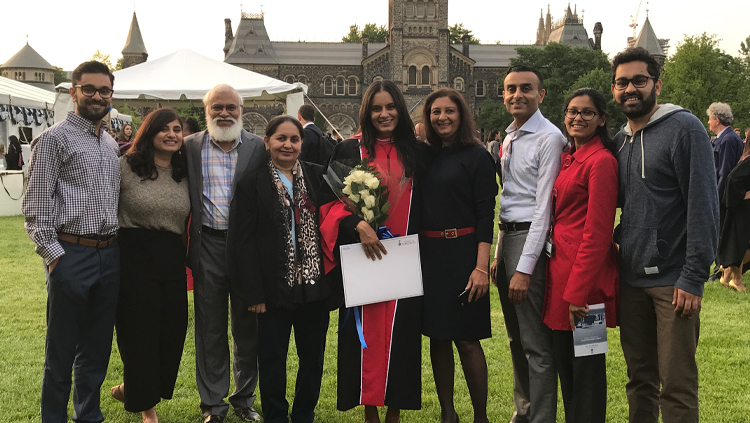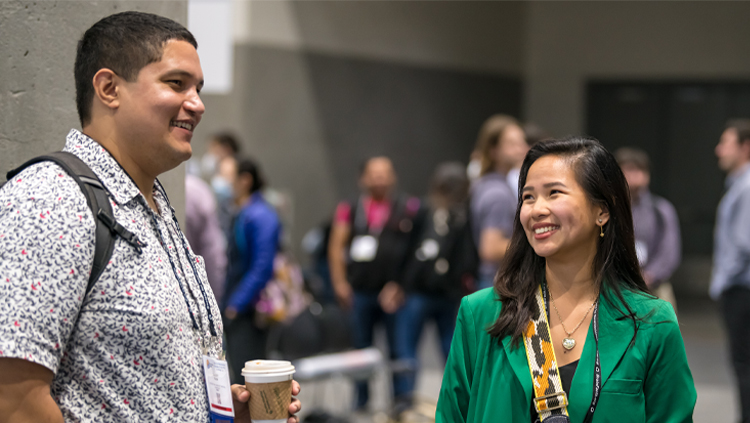Melody Schwenk is a PhD student studying the intersection of language, cognition, and education at Gallaudet University. Schwenk’s parents discovered that she was Deaf when she was two and a half years old. She also discovered at a young age that she was interested in science. Through every stage of her life, from learning ASL and spoken English at an early intervention school, to now working in the Action & Brain Lab at Gallaudet, Schwenk aims to show others that it is possible to succeed in science and be Deaf.
When I think about my role in life, I think about all the labels that have been assigned to me over the years – student, woman, white, enigmatic, charismatic, smart, neuroscientist, and Deaf – and I often reckon with what all of these identifiers mean within society. But when I think about my work, being a Deaf woman in neuroscience becomes my most prominent identifier. Many of my friends in science are not Deaf, and in fact, they often forget that I am.
By all accounts, society at large is shocked that I have succeeded and entered science because of the stigmas and associations we have about Deaf people–but these are often ill-founded and lack nuance. While there are not many Deaf people in science, I think that my presence and excitement about the field can expose many neuroscientists to the Deaf community they are studying and allow me to advocate for better.
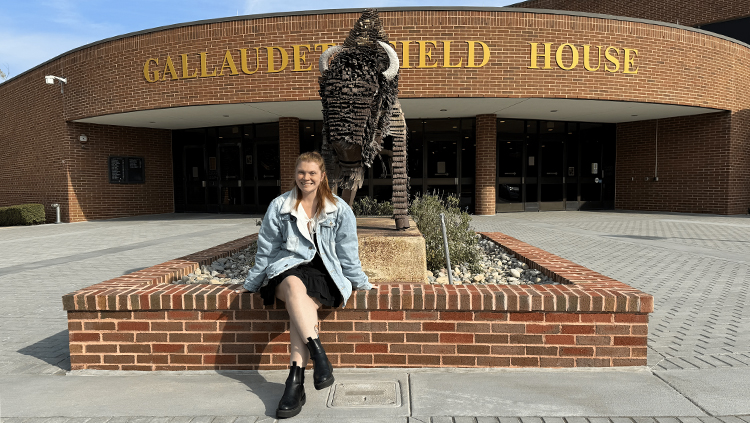
Let me start at the beginning: my parents didn’t know I couldn’t hear until I was about two and half years old. My mother only realized after talking with one of her colleagues about their child’s speech and the funny things that their child would say, but she could not offer anything because I had not spoken in any meaningful utterances that anyone aside from her could understand. It was then my mother realized something was “wrong” and did everything in her power to “fix” me. It was during an evaluation for early intervention that it was suggested I see an audiologist, because I excelled on the non-verbal reasoning parts of the cognitive assessment but did not respond at all to any of the verbal section prompts. My mother and father quickly got me enrolled in early intervention in a school for the deaf where I learned ASL and spoken English at the same time before being moved into a mainstream school with only spoken English for pre-K through 12th grade.
My love for science started as soon as I was able to effectively communicate with my parents. There are pictures of me at three years old at the New York Hall of Science with the rocket ship in the background. While my parents did not know exactly what to do, they knew I loved the cause and effect of things in daily life and provided me with tangible experiences to make sure that what I lacked in auditory ones, I could experience like every other child. This pattern continued throughout my elementary school years where I would miss all the information at school, review with my father and do science experiments to “catch up”. Once I entered middle and high school, there was no question that I excelled at science. Likely in large part because science is universal and can be taught through multiple language modalities (how we communicate ourselves in spoken, written, or signed languages). Science was fun, tangible, and accessible without me needing to ask for help to understand.
My journey in neuroscience started off as an epic failure in undergraduate. I failed Biology 101 because the professor had a very strong foreign accent, provided very little visual or written material. I did not yet understand I was entitled to accommodations, nor did I know how to navigate the complex system of receiving it. This pattern continued throughout my undergraduate years. Simply informing professors that I was deaf was not enough – they didn’t know how to help me or provide resources that could supplement their spoken lectures other than PowerPoint. Some professors even adamantly argued against PowerPoint because it meant, in their minds, students would not pay attention to the lecture. I have never been one to back down from a challenge, so I figured out how to learn these abstract concepts on my own.
"I continually experienced obstacles my hearing peers did not. In laboratory settings, people often spoke quietly or too quickly, or when I asked them to write things down, they didn’t understand why that was important to me. Their rationale was that I could speak clearly, therefore I could hear well if I had my hearing aids. And in some situations that is true – if it is quiet, with no electrical interference, and good acoustics in a room I do hear quite well and understand speech. But science is rarely perfect, this is something we all know, but often forget. There are many assumptions about what a deaf person looks like and many people, scientists included, envision us to be signers who cannot speak so when confronted with a person who didn’t quite match their vision didn’t know how to incorporate the new information.
It became disheartening to know that I would never quite fit into the standard lab structure and culture, but what was even more upsetting was that I knew that I could be a scientist, but I didn’t quite have the vocabulary to articulate to people how or what I needed. This all changed once I arrived at Gallaudet where I had full access to language, information, and experiences from the moment I set foot on campus. While I was a new signer, there were visual representations and written versions of everything. I will admit that I had very low expectations for working in Action & Brain Lab (ABL). I was afraid of being the only one who didn’t have as much meaningful laboratory experience because in the past it was nearly impossible to contribute to anything. But in ABL, my experience as a Deaf scientist has been vastly different than in other settings. My ideas of what is valuable to study and my opinions on how to design studies with deaf people in mind are considered and I am not questioned why these things are relevant or needed. I am eternally grateful to my advisor Lorna Quandt for bringing me in and giving me a chance to learn and become a member of her team.
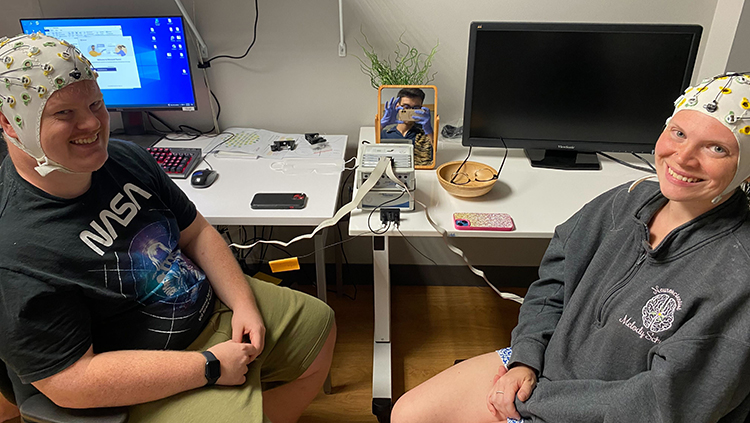
My experience as a Deaf person in science has run the full spectrum from frustrating and downright miserable to a point of pride and great successes. While I find myself at peace with all my experiences now, I do think actively creating an inclusive space for Deaf people in science should be discussed more. Deaf people are not broken, the issue is that we often lack access and the appropriate vocabulary to describe what it is we need. We are sometimes forgotten and thought of as an anomaly, but the truth is there are likely many scientists with hearing loss who have not come forward because of the derision, exclusion, and lack of understanding that we get in most situations.
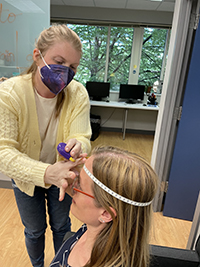 I am incredibly fortunate to have been encouraged by so many people, especially my mom and my advisor. They have been paramount in my growth as a scientist over the past few years. I had begun to hate working in neuroscience and saw it as a field that would never yield to me, but I still had passion because of a deep-seated curiosity. I am honored and grateful to have these two incredible women guide me in different ways. My mom, who had once viewed me as a child that needed “fixing,” became adamant that I was fine as is. I just needed to find ways to better advocate for myself rather than abandon the field that I believe I can significantly contribute to. I am also grateful for Lorna for opening a new world of science to me, being an incredible ally, and introducing me to other Deaf women scientists who now serve as role models.
I am incredibly fortunate to have been encouraged by so many people, especially my mom and my advisor. They have been paramount in my growth as a scientist over the past few years. I had begun to hate working in neuroscience and saw it as a field that would never yield to me, but I still had passion because of a deep-seated curiosity. I am honored and grateful to have these two incredible women guide me in different ways. My mom, who had once viewed me as a child that needed “fixing,” became adamant that I was fine as is. I just needed to find ways to better advocate for myself rather than abandon the field that I believe I can significantly contribute to. I am also grateful for Lorna for opening a new world of science to me, being an incredible ally, and introducing me to other Deaf women scientists who now serve as role models.
It is critical that we as scientists continue to make spaces for other Deaf scientists, actively include them, consider their perspectives, and accommodate them without complaint if we are to produce good, useful science that applies broadly. Many Deaf people don’t have access to high-quality science education, and this is something that must change. I was one of those people until I started at Gallaudet. Now, I hope to serve as a mentor and show others that it is possible to succeed in science and be Deaf. Our success just shows that we are powerful, resourceful, and capable of so much more than society gives us credit for.

